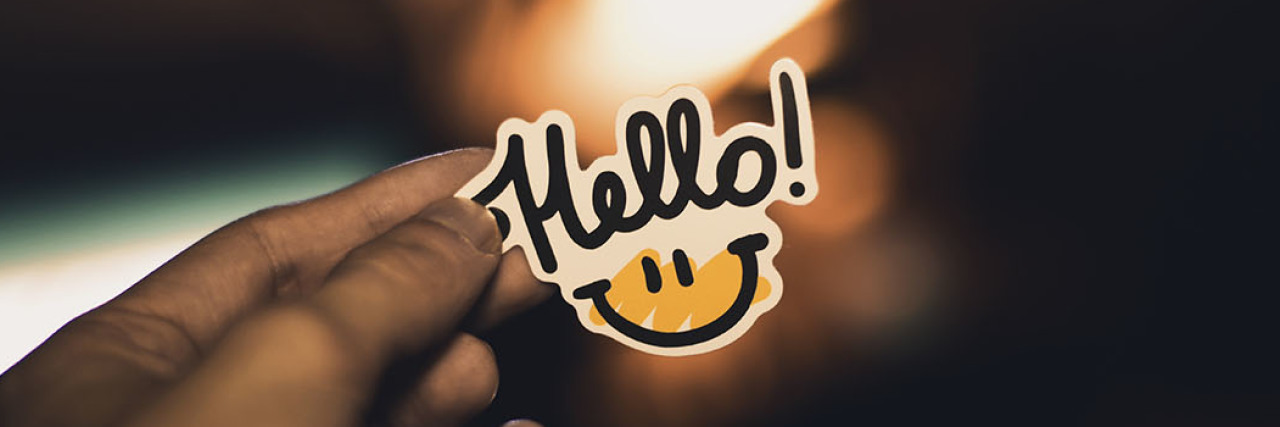The grocery store clerk casually asks me, “How are you?” as he rings up my items — spoils of war, really, because getting dressed, driving to the store, and picking up what I need for next week’s meals requires a Herculean effort. It’s such a small errand, but it takes a lot out of someone like me with a chronic illness.
“Good. How are you?” The words are out of my mouth before I even think about them. Immediately after I say them, I realize they’re a lie. My stomach is roiling with nausea. My brain is tired from wondering if I’ve forgotten something on my list. I’m a little shaky and I need to sit down. I’m not good. I’m not even mediocre. I passed mediocre and went right on to lousy when I had to stop and sit down in the middle of the canned soup aisle because I got woozy. Go ahead and stare, other shopper; you can just wheel your cart right past me. Oh, I’m blocking the chicken broth? Here you go. Sorry about that. Yes, I’ll be fine. Move along.
But the small talk with the cashier has ended, and there’s no point in me backtracking to tell him how I really am. For one thing, it’s unlikely the cashier really cares to hear about a random person’s chronic illness. It’s hard to believe he was looking for any answer other than “fine.” For another, I don’t really feel like talking about my not-fineness with a random person.
The meaning of “How are you?” has morphed into a casual greeting, at least in the context of strangers. Why are we using it this way when there are perfectly good one- and two-syllable words that actually mean what we’re trying to say?
Hi.
Hello.
Greetings.
Howdy.
Shalom.
Heck, I’ll even accept “Chuba” (Huttese), “Tek’ma’te” (Goa’uld), or HISSSSS (Parseltongue). Although there’s a chance I’d misinterpret that last one to mean “I want to murder you,” so maybe steer clear of the snake-like greetings unless your intent is to avoid small talk, in which case I completely understand.
I know when a friend asks me how I’m doing, they actually want to know. But when a stranger does it, it feels awkward. Do I just lie and say “fine,” because that’s the social expectation? Do I say “I’m sick” and suffer through the “Oh, I hope you feel better soon” response because they don’t know I have a chronic illness? Do I go with something noncommittal, like “surviving,” to avoid the question?
Maybe I should just learn Parseltongue so people avoid me altogether.
I’m actually as guilty as the next person for using “How are you?” in this way, but I’m going to consider my words with strangers more carefully from now on and hope it catches on. There are many more interesting ways of saying hello, anyway. Namárië.

